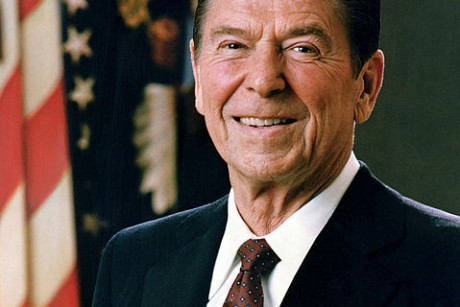On Nov. 3, 1969, Richard Nixon, his presidency about to be broken by massive antiwar demonstrations, called on “the great silent majority” to stand by him for peace with honor in Vietnam.
Videos by Rare
They did. Within days Nixon’s approval surged to 68 percent. The ferocious Republican partisan of the 1950s had won over millions of Democrats.
Why? Because sons and brothers of those Democrats were doing much of the fighting in Vietnam. If Nixon was standing by them, they would stand by him.
In 1972 Nixon would win 49 states. Ronald Reagan, backed by his “Reagan Democrats,” would win 44- and 49-state landslides.
Yet since Reagan went home, Democrats have won the popular vote in five of six presidential elections. The New Majority is history. The Reagan Democrats have departed. What happened?
Answer: For a generation, when forced to choose between Middle America and corporate America, on NAFTA, most-favored nation for China, and free trade, the GOP establishment opted to go with the Fortune 500. In the GOP, the corporate conservative rides up front; the social, cultural and patriotic conservatives in the back of the bus.
Consider who has benefited most from Republican-backed globalization.
Was it not corporate executives and transnational companies liberated from the land of their birth and the call of patriotism?
Under the rules of globalization, US corporations could, without penalty or opprobrium, shut their factories, lay off their US workers, erect new plants in Asia, produce their goods there, and bring them back free of any tariff to sell to consumers and kill the US companies that elected to stay loyal to the US.
They then used the profits from abandoning America to raise executive salaries to seven and eight figures.
And how did the Reagan Democrats make out?
Real wages of U.S. workers have not risen for 40 years. One in three US manufacturing jobs vanished between 2000 and 2010. The nation that used to produce 96 percent of all it consumed depends now on foreigners for the clothes and shoes we wear, the TV sets we watch, the radios we listen to, the computers we use, the cars we drive.
A nation that used to export twice what it imported has been running huge trade deficits for decades. China now holds $1 trillion in US debt and can buy Smithfield hams out of the petty cash drawer.
With 50,000 US factories closing in this new century, the greatest manufacturing power in history has been hollowed out, as Beijing booms at our expense. Corporate America is building the new China that is pushing Uncle Sam out of the western Pacific.
“Where did the ‘America’ in corporate America go?” asks Robert Patterson in National Review.
The Bush aide hearkens back to “Engine Charlie” Wilson, Ike’s first secretary of defense, who said, “For years I have thought what was good for our country was good for General Motors and vice versa.” Wilson’s words were twisted by a capitalist-baiting press, but he saw GM as first and foremost an American company.
Before Wilson there was William Knudson, the dollar-a-year man of FDR’s war effort who converted GM and Detroit into the great arsenal of democracy, a story movingly told by Arthur Herman in “Freedom’s Forge: How American Business Produced Victory in World War II.”
“In the good old days,” writes Patterson, “Americans could at least count on business leaders being pro-American. Beloved or not, major corporations functioned as true stakeholders of America: fortifying American industry and building American factories, spreading American innovation, paying billions of dollars in American taxes and creating millions of high paying ‘family-wage’ jobs that helped create and sustain an expanding middle class.”
And today?
“No longer committed to a particular place, people, country or culture, our largest public companies have turned globalist, while abdicating the responsibility they once assumed to America and its workers.”
Citing Joel Kotkin’s work, Patterson adds, “the worst offenders are Apple, Facebook, Google, the high-tech firms secluded in Silicon Valley, a dreamland where the information age glitterati make Gilded Age plutocrats look bourgeois.”
Google has five times GM’s market capitalization but employs only one-fourth the number of GM’s American workers. Steve Jobs’ Apple has “700,000 industrial serfs” working overseas.
Since we bailed it out, GM has become “General Tso’s Motors,” creating 6,000 new jobs in China while shedding 78,000 U.S. jobs here.
Marco Rubio today leads Senate Republicans in doing the bidding of corporate America, which, in payback for its campaign contributions, wants amnesty for 12 million illegal aliens.
Agribusinesses need more peons. Restaurant chains want more waitresses, dishwashers, busboys. Construction companies want more ditch-diggers. Silicon Valley demands hundreds of thousands more H-1Bs — foreign graduate students who can be hired for half what an American engineer might need to support his family.
“Merchants have no country,” said Thomas Jefferson. “The mere spot they stand on does not constitute so strong an attachment as that from which they draw their gains.”
Amen to that.
Patrick J. Buchanan is the author of “Suicide of a Superpower: Will America Survive to 2025?”
© CREATORS.COM



